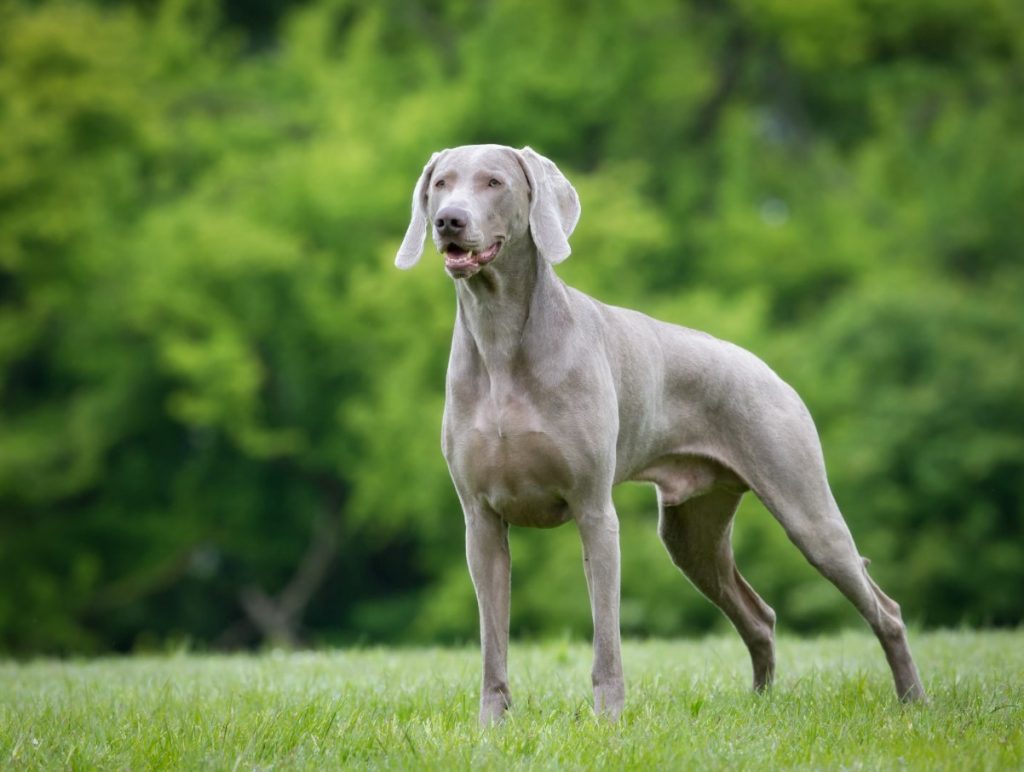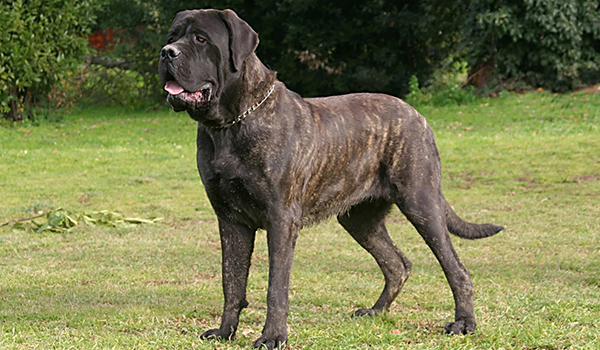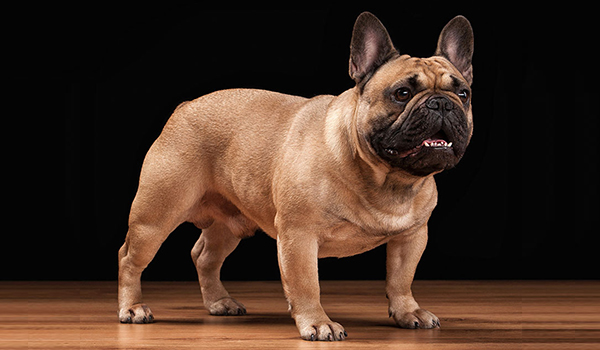
The Weimaraner, often called the “Gray Ghost,” is a breed of striking beauty and intense energy. With their sleek, silver-grey coat, mesmerizing light eyes, and regal athletic build, they capture immediate attention. But beneath this elegant exterior lies a powerful hunting dog with a deep need for companionship and activity. They are not a breed for the casual owner; they are a demanding and rewarding partner for the right person or family.
This comprehensive guide will explore the reality of life with a Weimaraner to help you determine if you have the active lifestyle, time, and dedication to meet the profound needs of this sensitive and high-energy breed.
Breed Overview
- Group: Sporting
- Height: 23 – 27 inches (at the shoulder)
- Weight: 55 – 90 pounds (females are typically smaller)
- Life Span: 10 – 13 years
- Coat: Short, smooth, and solid in color, ranging from mouse-gray to silver-gray. The rare long-haired variety has a soft, silky coat with a feathery tail.
A Brief History: The Noble Hunter of Germany
The Weimaraner’s history began in early 19th century Germany in the court of Grand Duke Karl August of Weimar. Nobles wanted to create the perfect hunting dog—one with courage, intelligence, good scenting ability, and speed to hunt large game like boar, bear, and deer. The breed was developed from a mix of bloodhounds, various German and French hunting dogs, and possibly a pointer.
As hunting for large game declined, they were refined into an all-purpose gun dog for birds and rabbits. The breed was so prized in Germany that for years, an exclusive club controlled its breeding, making it difficult to obtain a puppy outside of the club. They were introduced to the United States in the 1920s and gained popularity for their unique looks and versatile skills.
The Weimaraner Temperament: The Velcro Athlete
The Weimaraner’s personality is defined by its energy, intelligence, and profound attachment to its people. They are often described as “shadow dogs.”
- Energetic & Athletic: Bred for endurance, Weimaraners have a tremendous amount of energy that must be expended daily. They are built for speed and stamina.
- Intelligent & Willful: They are exceptionally smart and quick to learn, but they are also independent thinkers. This combination can lead to stubbornness if not guided with consistent leadership.
- Deeply Loyal & People-Oriented: They form intensely strong bonds with their families and thrive on human contact. They are prone to severe separation anxiety and do not do well when left alone for long periods. They want to be involved in every aspect of your life.
- Aloof & Reserved with Strangers: They are often wary of strangers and can be protective of their home and family, making them excellent watchdogs. Early and extensive socialization is critical.
- Strong Prey Drive: Their hunting instincts are powerful. They will chase small animals, including cats, unless raised with them from a very young age.

Caring for Your Weimaraner
Exercise: A Non-Negotiable Lifestyle
This is the most critical aspect of Weimaraner ownership. A bored or under-exercised Weimaraner will become destructive, anxious, and develop problematic behaviors like chewing, digging, and incessant barking.
- Daily Requirements: At least 90-120 minutes of vigorous, heart-pumping exercise every single day.
- Types of Exercise: This must be more than a walk. Ideal activities include:
- Running: Jogging, bikejoring, or running off-leash in a secure area.
- Hiking & Swimming: They are excellent companions for long, adventurous hikes and most love to swim.
- Dog Sports: They excel in agility, field work, tracking, and obedience.
- Mental Stimulation: Their intelligent mind needs as much exercise as their body. Puzzle toys, training sessions, and nose work are essential.
Grooming: Low-Maintenance
- Brushing: A quick weekly brush with a grooming mitt or soft bristle brush is all that’s needed to remove loose hair and keep their coat shiny. They are moderate shedders.
- Bathing: Bathe only as needed. Their short coat is easy to keep clean.
- Other Needs: Regular nail trimming, ear cleaning (their floppy ears can trap moisture), and teeth brushing.
Training: Consistency and Leadership
Training a Weimaraner requires patience, consistency, and a firm but gentle hand. They are sensitive and do not respond well to harsh methods.
- Start Immediately: Begin socialization and puppy training the moment you bring your Weimaraner home. Expose them to a vast array of people, environments, sounds, and other animals in a positive way to build a confident, well-adjusted dog.
- Be a Confident Leader: They need an owner who can provide clear, consistent rules and boundaries. They respect confident leadership and will take advantage of inconsistency.
- Use Positive Reinforcement: They respond brilliantly to reward-based training with high-value treats, praise, and play. Make training fun and engaging.
- Address Separation Anxiety: This is a core issue for the breed. Crate training and gradually building up the time they spend alone is essential from the start.

Health: What to Be Aware Of
Weimaraners are generally healthy but are prone to certain genetic conditions. Responsible breeders test for these.
- Hip Dysplasia: A common skeletal condition that responsible breeders screen for with OFA or PennHIP certifications.
- Bloat (Gastric Dilatation-Volvulus): This is a life-threatening emergency for deep-chested breeds like the Weimaraner. Preventative measures are non-negotiable: feed smaller meals, avoid exercise around mealtimes, and know the signs.
- Hypothyroidism: Can lead to weight gain and skin issues.
- Eye Conditions: Such as entropion and distichiasis (eyelashes that grow abnormally).
- Certain Cancers: Including mast cell tumors.
Is a Weimaraner Right For You?
A Weimaraner might be your perfect match if you:
- Are an extremely active person or family (runner, hiker, hunter, athlete).
- Want a deeply loyal “velcro dog” that will be your constant companion.
- Have a lifestyle that allows the dog to be with you most of the time (they are not suited to being left alone all day).
- Are an experienced dog owner who can provide firm, gentle leadership and consistent training.
- Have a secure, large yard with a tall, durable fence.
You should absolutely reconsider if you:
- Want a low-energy or independent dog.
- Are away from home for long, regular hours.
- Are a first-time dog owner.
- Prefer a dog that is immediately friendly with all strangers.
- Are not prepared for the intensity of their exercise and companionship needs.

Finding Your Weimaraner
- Reputable Breeders: This is crucial. A good breeder will:
- Health Test: Provide OFA/PennHIP certifications for hips and thyroid tests.
- Focus on Temperament: Breed for stable, sound nerves and a good working attitude.
- Interview You Rigorously: They will want to ensure you have the lifestyle and experience for one of their high-energy, sensitive puppies.
- Rescue & Shelters: Weimaraner-specific rescues are very active. Many dogs end up there because owners were completely overwhelmed by their energy and need for constant companionship. Adopting an adult can be a wonderful way to provide a second chance.
Understanding the Cost: The initial cost from a reputable breeder in the U.S. ranges from $1,200 to $2,500+. The larger cost is the investment of time and activity. You must also budget for high-quality food, potential training classes, and preventative healthcare, including a plan for bloat prevention.
Bringing a Weimaraner into your life is a commitment to an intense, athletic, and deeply emotional partnership. In return for your unwavering dedication, you will gain the most loyal and captivating shadow—a “Gray Ghost” whose love and devotion are as powerful as their need to run.




